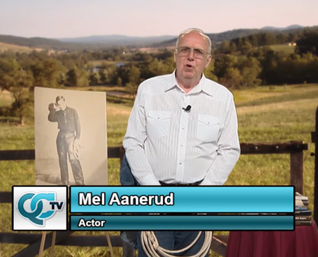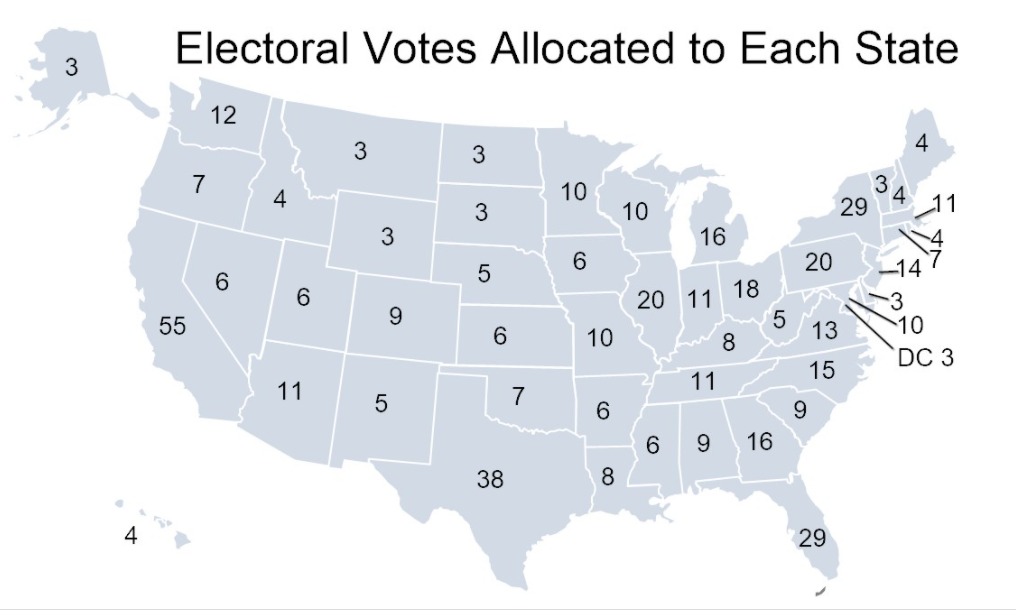|
December 14 is the day that Electors gather to cast their votes for President. This year, Mel Aanerud from Ham Lake will be one of those Electors. and he's agreed to join us on December 14 at 6:30 to tell us about his experience. The presentation will be non-partisan, and will include information on how the Electoral College came to be, the pros and cons, and what are the prospects of change. Of course, we'll be meeting virtually through Zoom; we'll send the link to members on Dec 7. The meeting is open to everyone, if you are interested, email us at [email protected] and we'll send it on to you, too.  Mel Aanerud is literally a Friend of League, having received this award from LWV ABC in 2018. Besides being a Friend of League and an Elector, Mel has been a Will Rogers re- enactor and further supports LWV ABC as husband of Kathy Aanerud, our Acting Vice President. Mel is a man of many talents who continues his studies of history, political science, and current events in his retirement. You can see a recording of Mel as Will Rogers by clicking here its on QCTV Special Editions. A second presentation on the Electoral College is being planned for later in December. In this presentation, we will talk about the LWV position on the Electoral College and efforts that different groups in League are undertaking to bring about change. We'll share information on this as soon as the details are set. In the meantime, you can read the LWV US position on the Electoral College below. From LWV US Impact on Issues 2018-20:, page 29
Selection of the President The League’s Position Statement of Position on Selection of the President, as announced by the National Board, January 1970, revised March 1982, updated June 2004 and revised by the 2010 Convention: The League of Women Voters of the United States believes that the direct-popular-vote method for electing the President and Vice President is essential to representative government. The League of Women Voters believes, therefore, that the Electoral College should be abolished. We support the use of the National Popular Vote Compact as one acceptable way to achieve the goal of the direct popular vote for election of the president until the abolition of the Electoral College is accomplished. The League also supports uniform voting qualifications and procedures for presidential elections. The League supports changes in the presidential election system—from the candidate selection process to the general election. We support efforts to provide voters with enough information about candidates and their positions, public policy issues and the selection process itself. The League supports action to ensure that the media, political parties, candidates, and all levels of government achieve these goals and provide that information. League History A League study of the presidential electoral process culminated in a 1970 position supporting direct election of the President by popular vote as essential to representative government. The League testified and lobbied for legislation to amend the U.S. Constitution to replace the Electoral College with direct election of the President, including provisions for a national runoff election in the event no candidates (President or Vice President) received 40 percent of the vote. The measure, which passed the House and nearly passed the Senate in 1971, has been revived in each Congress without success. In 1997, LWVUS again called for abolition of the Electoral College and for direct election of the President and Vice President in testimony before the House Subcommittee on the Constitution. 28 The League has supported national voting qualifications and procedures for presidential elections to ensure equity for voters from all states and to facilitate the electoral process. In February 2001, a memo was sent to state and local Leagues outlining the League’s position on the Electoral College under the LWVUS position on Selection of the President. The League believes strongly that the Electoral College should be abolished and not merely “reformed.” One “reform” which the League specifically rejects is the voting by electors based on proportional representation in lieu of the present “winner-takes-all” method. Such a system would apportion the electoral votes of a state based on the popular vote in that state. Instead of making the Electoral College more representative, such proportional voting would increase the chance that no candidate would receive a majority in the Electoral College, thereby sending the election of the President to the House of Representatives where each state, regardless of population, would receive only one vote. Election of the President by the House further removes the decision from the people and is contrary to the “one person, one vote” principle. The League also does not support reform of the Electoral College on a state-by-state basis because the League believes there should be uniformity across the nation in the systems used to elect the President. The 2002 Convention voted to expand and update the position. The League came to concurrence on a new position in June 2004, which takes into account the entire presidential selection process and supports a process that produces the best possible candidates, informed voters, and optimum voter participation. The 2008 Convention voted to conduct a study of the National Popular Vote Interstate Compact (NPVIC) proposal, which would establish the popular election of the President through a compact among the states governing how they would cast their votes in the Electoral College. The 2010 Convention adopted a concurrence to support the NPVIC as another method of selecting the President until the Electoral College is abolished. Convention 2018 voted to amend and add advocacy of the National Popular Vote Interstate Compact to the 2018-2020 Campaign for Making Democracy Work®. To support this effort, in 2018 LWVUS created an online discussion group to enable members working on this issue across the country to connect and in early 2019 LWVUS created an NPVIC Task Force to assess state-level interest, evaluate the status of the effort, and recommend next steps."
1 Comment
|
LWV ABC serves most of Anoka County and the city of Champlin in northern Hennepin Couny, Minnesota.Categories
All
|
| LWV Upper Mississippi River Region | LWV ABC Blog |
